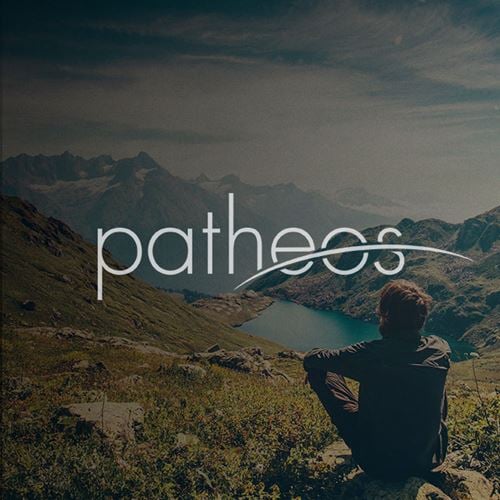- Trending:
- Pope Leo Xiv
- |
- Israel
- |
- Trump
- |
- Social Justice
- |
- Peace
- |
- Love
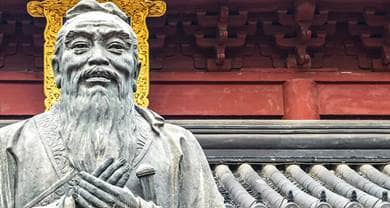
RELIGION LIBRARY
Confucianism
Worship and Devotion in Daily Life
To live one's life as the best person one can be, to constantly strive to cultivate one's character, and to act according to one's proper role within the human community -- these are the daily devotional activities of one who is trained under the Confucian system.
Aside from participating in various modes of social hierarchy (family, community, locality, nation) and dutifully performing sacrifices to one's ancestors, probably the most powerful example of worship and devotion in the daily life of traditional Confucians is the consultation of the ancient divination manual known as the Yijing (Classic of Change). This text, included in the original Confucian canon of Wujing (Five Classics) as early as the Han dynasty, has been consulted by Confucians for more than 2,000 years, but became the basis of personal ritual practice for Confucians in the Song dynasty, when Zhu Xi (1130-1200) wrote his commentary on the use of the text, Yixue qimeng (An Introduction to the Study of the Yijing).
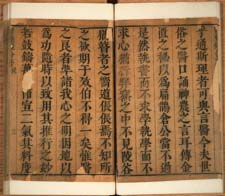 In most people's understanding, the Yijing is a simple tool for predicting future events or the eventual outcomes of present circumstances that transcends any particular religious or even cultural tradition. Millions of Chinese and other East Asians of all religious stripes, as well as Westerners, use the text for this purpose every day. Using coin tosses or other random processes, one generates six variables, which in turn generate the six lines of a gua (hexagram). The Yijing contains sixty-four gua, each of which includes a general statement (its "Judgment"), a commentary on the Judgment, individual statements on specific lines within the hexagram, the name of an image associated with the hexagram (i.e., "The Well," "Earth"), and a commentary on that image. The usual method is not very complicated: pose a question, generate a hexagram, and apply that hexagram's various texts to the resolution of the question. The nature of these texts is ambiguous and vague, rather like fortune cookie sayings, which renders them suitable for approaching almost any question.
In most people's understanding, the Yijing is a simple tool for predicting future events or the eventual outcomes of present circumstances that transcends any particular religious or even cultural tradition. Millions of Chinese and other East Asians of all religious stripes, as well as Westerners, use the text for this purpose every day. Using coin tosses or other random processes, one generates six variables, which in turn generate the six lines of a gua (hexagram). The Yijing contains sixty-four gua, each of which includes a general statement (its "Judgment"), a commentary on the Judgment, individual statements on specific lines within the hexagram, the name of an image associated with the hexagram (i.e., "The Well," "Earth"), and a commentary on that image. The usual method is not very complicated: pose a question, generate a hexagram, and apply that hexagram's various texts to the resolution of the question. The nature of these texts is ambiguous and vague, rather like fortune cookie sayings, which renders them suitable for approaching almost any question.
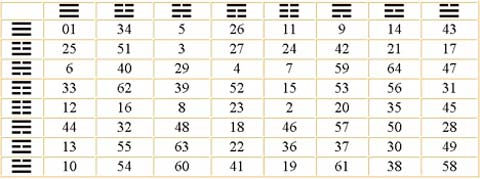
For Zhu Xi, however, consulting the Yijing was a ritual tool that could be vital in the cultivation of one's shenming (spiritual clarity), by which he meant the ability of the human heart-mind to unite with li (cosmic principle) and thus commune with the source of cosmic order and creativity. By using the Yijing as a meditative aid, a Confucian could refine his qi (vital energy) to a point of shenming such that his innate capacity to understand and express the moral purpose of Tian (Heaven) through li could become fully developed.
Because of the emphasis placed on the Yijing by Zhu Xi and other "Neo-Confucian" thinkers, it alone of the Wujing texts remained prominent and influential after the Wujing was superseded by the newer canon of the Sishu (Four Books) championed by the "Neo-Confucians." Nonetheless, the Yijing remained important not because it continued to be used in the traditional way -- as a mere divination tool -- but because of the profound moral and cosmological significance that it acquired as an element of personal Confucian ritual life, thanks to the work of Zhu Xi and others.
Like other Confucians (and indeed all religious persons), Zhu Xi took for granted that the universe makes sense, specifically moral sense. It is up to human beings to discover the universe's moral rhyme and reason as ordained by Tian, however. In order to do that, one must cultivate one's own heart-mind. As Mengzi said, "To fully develop one's mind is to know one's nature. To know one's nature is to know Tian. Preserving one's mind and nourishing one's nature is how one serves Tian" (Mengzi 7A1). Thus, self-examination and self-cultivation are fundamentally religious activities in the Confucian tradition.
To this understanding of the Confucian spiritual path, Zhu Xi added the idea that the hexagrams of the Yijing are graphic symbols of li, which operates in a dynamic mode of balanced exchange between the complementary opposites of yin and yang to transform the raw qi of the universe (not to mention the human heart-mind) into a world that perfectly mirrors li and thus Tian. Zhu Xi drew not only from the Mengzi, but from other Sishu texts such as the Zhongyong (The Doctrine of the Mean), which says:
Only that one in the world who is most perfectly authentic [or sincere -- cheng] is able to give full development to his nature. Being able to give full development to his nature, he is able to give full development to the nature of other human beings and, being able to give full development to the nature of other human beings he is able to give full development to the natures of other living things. Being able to give full development to the natures of other living things, he can assist in the transforming and nourishing powers of Heaven and Earth; being able to assist in the transforming and nourishing powers of Heaven and Earth, he can form a triad with Heaven and Earth.
One ritual method for learning how "to give full development to [one's] nature," according to Zhu Xi, was to consult the Yijing prayerfully and meditatively so as not merely to obtain a predicted outcome (as in the usual method of consulting the text), but so as to become sensitive to the most subtle and gradual patterns of change in the ever-shifting patterns of yin and yang. By learning to understand how the universe at large operated, one would come to understand oneself, and by coming to understand oneself, 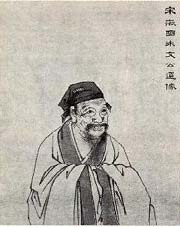 one would enter into deeper communion not only with Tiandao (the Way of Heaven), but with all things.
one would enter into deeper communion not only with Tiandao (the Way of Heaven), but with all things.
Although not all present-day Confucians practice Zhu Xi's method of consulting the Yijing, it remains the second-most widely-read book in the world (after the Bible), especially in East Asia, where it is used daily by millions of people. The text's assumption that apparent chaos can disclose underlying order continues to inspire Confucians and others to use it to find their place in the ever-changing universe.
Study Questions:
1. What is the Yijing?
2. What is the role of the Yijing in Confucian spiritual life?
3. How do Confucian spiritual practices relate to Confucian scriptures?








